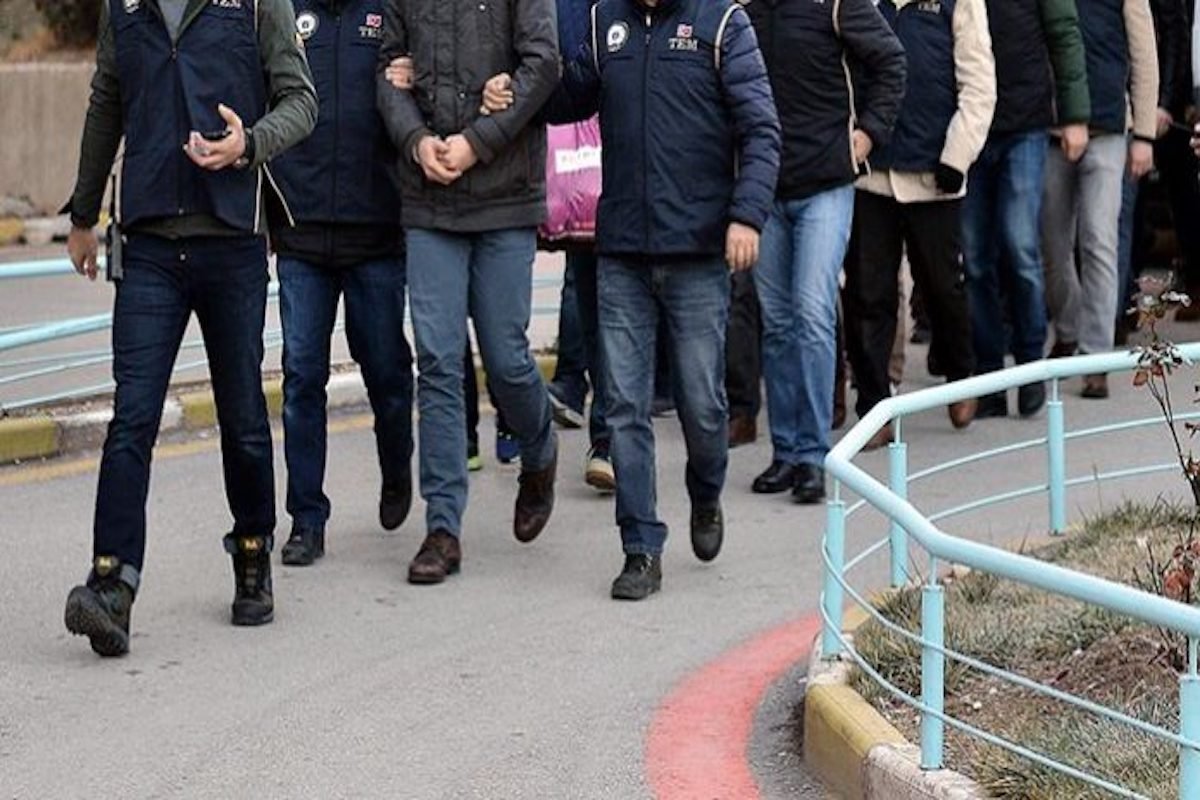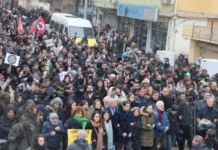Turkish authorities have over the past week ordered the detention of 133 people due to alleged links to the faith-based Gülen movement, according to local media reports.
Detention warrants for 15 people were issued on Monday by the Konya Chief Public Prosecutor’s Office. The police detained six of the suspects, who were accused of being affiliated with the movement.
On Tuesday 38 people were detained by the police after the Ankara Chief Public Prosecutor’s Office issued detention warrants that spanned 15 provinces. The detainees are accused of organizing the movement’s “infiltration” of the Capital Markets Board and using the ByLock messaging application.
ByLock, once widely available online, has been considered a secret tool of communication among supporters of the Gülen movement, a faith-based group outlawed by Ankara, since the coup attempt on July 15, 2016, despite the lack of any evidence that ByLock messages were related to the abortive putsch.
The so-called “pay phone investigations” are based on call records. The prosecutors assume that a member of the Gülen movement used the same pay phone to call all his contacts consecutively. Based on that assumption, when an alleged member of the movement is found in call records, it is assumed that other numbers called right before or after that call also belong to people with Gülen links.
On the same day five more people, including a former teacher and police officers who were dismissed from their jobs by government decrees in the aftermath of a coup attempt in 2016, were detained in Tekirdağ. These individuals were accused of being affiliated with the movement and were detained while allegedly attempting to leave Turkey.
The Gülen movement, inspired by Turkish cleric Fethullah Gülen, is accused by the Turkish government and President Recep Tayyip Erdoğan of masterminding the failed coup and is labeled a “terrorist organization,” although the movement denies involvement in the coup attempt or any terrorist activity.
On Wednesday nine people were detained in Malatya as part of an investigation into their links to the movement. They were accused of communicating with movement leaders abroad via social media. Approximately TL 960,000 ($30,000)), cell phones and computers were confiscated during raids on their homes and offices.
On Thursday Interior Minister Ali Yerlikaya announced on X that 72 people were detained across 17 provinces. Yerlikaya said the detainees included suspects involved in the movement’s alleged infiltration of the police as well as individuals determined to have used the ByLock messaging application or who were accused of secretly communicating with their contacts within the movement via pay phones.
Additionally, detention warrants for 11 people were issued on Thursday by the İzmir Chief Public Prosecutor’s Office. The police detained nine of the suspects, who were accused of depositing money at the Gülen-linked Bank Asya and using ByLock to communicate.
The Turkish government accepted such daily activities as having an account at or depositing money in a Gülen movement affiliated bank, working at any institutions linked to the movement or subscribing to certain newspapers and magazines as benchmarks for identifying and arresting tens of thousands alleged members of the movement on charges of membership in a terrorist organization.
Erdoğan has been targeting followers of the Gülen movement since the corruption investigations of December 17-25, 2013, which implicated then-prime minister Erdoğan, his family members and his inner circle.
Dismissing the investigations as a Gülenist coup and conspiracy against his government, Erdoğan designated the movement as a terrorist organization and began to target its members. He intensified the crackdown on the movement following the abortive putsch in 2016 that he accused Gülen of masterminding.
In addition to the thousands who were jailed, scores of other Gülen movement followers had to flee Turkey to avoid the government crackdown.
Turkish authorities routinely rely on witness statements as evidence to identify and prosecute members of the group.
The defendants in the trials against the movement are often encouraged to benefit from the country’s repentance laws allowing for reduced penalties in exchange for denouncing other members of the group.
In recent years there have also been many reports about the alleged use of torture and ill-treatment in custody to coerce detainees into becoming informants and incriminating others.















